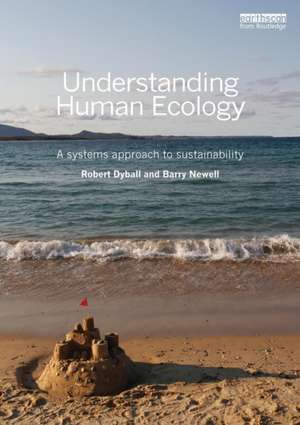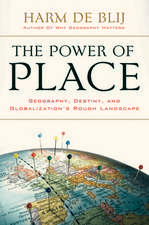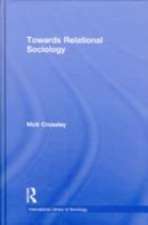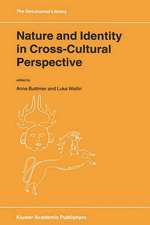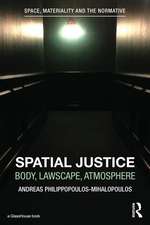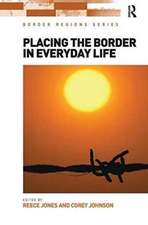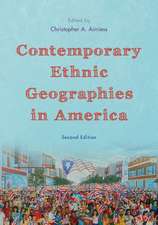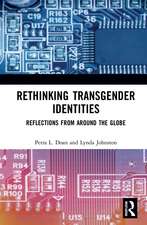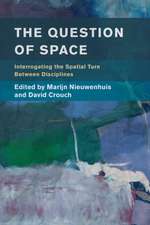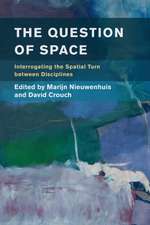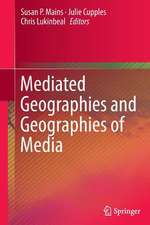Understanding Human Ecology: A systems approach to sustainability
Autor Robert Dyball, Barry Newellen Limba Engleză Paperback – 31 aug 2014
| Toate formatele și edițiile | Preț | Express |
|---|---|---|
| Paperback (2) | 324.25 lei 3-5 săpt. | +179.25 lei 7-13 zile |
| Taylor & Francis – 30 iun 2023 | 324.25 lei 3-5 săpt. | +179.25 lei 7-13 zile |
| Routledge – 31 aug 2014 | 333.54 lei 3-5 săpt. | +20.94 lei 7-13 zile |
| Hardback (1) | 768.64 lei 6-8 săpt. | |
| Taylor & Francis – 30 iun 2023 | 768.64 lei 6-8 săpt. |
Preț: 333.54 lei
Nou
63.82€ • 66.81$ • 52.81£
Carte disponibilă
Livrare economică 15-29 martie
Livrare express 01-07 martie pentru 30.93 lei
Specificații
ISBN-10: 1849713839
Pagini: 234
Ilustrații: 80 black & white illustrations, 11 black & white tables, 10 black & white halftones, 69 black & white line drawings
Dimensiuni: 173 x 244 x 18 mm
Greutate: 0.41 kg
Ediția:New.
Editura: Routledge
Notă biografică
Dr Robert Dyball convenes the 35 year old Human Ecology Program at ANU. He is vice-president of the Society for Human Ecology and Chair of the Human Ecology Section of the Ecological Society of America (ESA). Co-author of Social Learning in Environmental Management (2005).
Dr Barry Newell is Visiting Fellow at the Fenner School and Adjunct Associate Professor in the College of Engineering and Computer Science, both at ANU.
Cuprins
Prologue: Six Impossible Things Before Breakfast Part I: The Challenge 1. Human Ecology: An Evolving Discipline 2. Water Conflicts in the Snowy Mountains Part II: Building Shared Understanding 3. Thinking Together 4. System Dynamics I: Stocks and Flows 5. System Dynamics II: Feedback 6. Systems and Sustainability 7. Towards a Shared Theoretical Framework Part III: Living in the Anthropocene 8. Paradigms: Ideas that Change the World 9. Living Well in the Anthropocene 10. Consumers and Global Food Systems 11. Stewards of a Full Earth
Recenzii
Robert Costanza, Institute for Global Prosperity, University College London, UK, and Editor in Chief of The Anthropocene Review
"Understanding Human Ecology by Dyball and Newell is an important book for human ecology and sustainability. The book’s success, from the first to this current edition, is based on a three-fold feature: wide-ranging application of the systems-based transdisciplinary model to critical social–ecological systems of food, health, and livelihoods; far-reaching contexts of cases from the Asia Pacific and Europe; transdisciplinary alignment of theory, concepts and application that makes it accessible not only to academics but also to sustainability and development practitioners including policymakers."
Jennifer Marie S. Amparo, Associate Professor, College of Human Ecology, University of the Philippines Los Baños, The Philippines
"A central challenge for enhancing human wellbeing is to establish a sustainable society in harmony with nature across all regions of the world. Integrating rigorous research, education, and policymaking to meet this challenge is urgently needed. Understanding Human Ecology provides an insightful guide to how this might be achieved."
Kazuhiko Takeuchi, President, Institute for Global Environmental Strategies, Japan
"Understanding Human Ecology provides a coherent and lucid discussion of the topic, is user-friendly for university students (a rarity for a textbook), and makes clear connections to key issues such as sustainability, food security, and ethical issues of justice and fairness in environmental planning that are of serious and urgent concern. I consider it a foundational book in the field."
Annie Booth, Professor Environmental & Sustainability Studies, University of North British Columbia, Canada
"It is time to move beyond the simplistic approaches of cause–effect logic and the triple bottom line that typify many attempts to meet the sustainability challenge. This timely textbook brings the powerful approach of systems thinking to the most pressing, seemingly intractable problems that face humanity in the twenty-first century."
Will Steffen, Emeritus Professor, Fenner School of Environment and Society, Australian National University
"From the Prologue to the concluding chapters, this work has resonated with my students in both introductory and graduate-level classes. Dyball and Newell use a mix of anecdotes, historical references, and scientific research to weave a narrative that captivates the reader and addresses why human ecology is needed, what it is, and how it can be applied. A perfect text to help students understand a most complex topic."
Kenneth E. Hill, Provost, College of the Atlantic, USA
"Understanding Human Ecology by Dyball and Newell provides a novel and transdisciplinary framework for understanding sustainability. This ‘must-read’ book explains why people have historically made such a mess of the environment and provides a convincing case for why we must and can switch from a paradigm of limitless growth to one of ethical living, content with sufficiency."
Terry Chapin, University of Alaska Fairbanks, USA, and Past President, Ecological Society of America
"This important book helps to elucidate the interplay between planetary change and human health, with profound implications for our understanding of the dynamics of contemporary health problems such as the global obesity epidemic and pandemic infectious diseases."
Anthony Capon, Director, Sustainable Development Institute, Monash University, Australia
"Understanding Human Ecology provides a sophisticated yet accessible discussion of the complex systems driving human health and wellbeing in the past, present, and for the future. The authors present methods that can be applied by those interested in the diverse settings of physical, psychosocial, and socioeconomic sectors. Such attempts of analysis and integration often require interdisciplinary skills, however, these authors have paid great attention to the techniques of communication necessary to ensure the effective use of the concepts by a wide-ranging audience from policy workers, researchers, and the public."
Ivan Hanigan, Senior Lecturer in Climate Change and Health, School of Population Health, Curtin University, Australia
"Understanding Human Ecology provides an accessible introduction to the field and to the essential tool of systems analysis. It is an invaluable resource for teachers in human ecology and sustainability science as it reveals how individual everyday experiences and dilemmas are rooted in wider human–environment relations, and helps students appreciate the importance of systemic and historical perspectives on ‘how did we get to this?’ – and equally important, ‘where can we go from here?’"
Ellinor Isgren, Lecturer in Human Ecology, Department of Global Studies, University of Gothenburg, Sweden
Descriere
This key text offers a coherent conceptual framework for human ecology – a clear approach for understanding the many systems we are part of and for how we frame and understand the problems we face. Essential reading for students and scholars of human ecology, environmental ethics, and sustainability studies.
